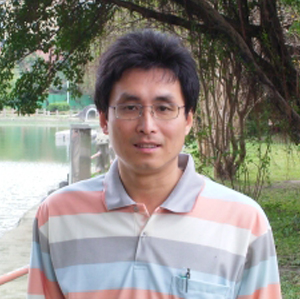Keynote Speaker
Prof. Hiroaki Hata
Hitotsubashi University, Japan
Speech Title: Optimal Investment and
Reinsurance of Insurers with a Nonlinear Stochastic Factor
Model
Abstract: In this talk, we consider an optimal investment and reinsurance problem faced by an insurer. The insurer invests in a market consisting of a riskless asset and $m$ risky assets. The mean returns and volatilities of the risky assets depend nonlinearly on economic factors. These factors are formulated as the solutions of nonlinear stochastic differential equations. The wealth of the insurer is described by the riskless asset, the risky assets, and a Cram\'er--Lundberg process for reinsurance. Moreover, the insurer's preferences are described by an exponential utility function (i.e., CARA (Constant Absolute Risk Aversion) utility function). By adapting the dynamic programming approach, we derive the Hamilton--Jacobi--Bellman (HJB) equation. We also prove the solvability of the HJB equation by approximating it with a sequence of related Dirichlet problems or by using the extended Feynman-Kac formula. Finally, by proving the verification theorem, we construct the optimal strategy.
Biodata: TAB
Invited Speaker

Prof. Hsi-Sheng Goan
National Taiwan University, Taiwan
Speech Title: Quantum Machine Learning
Abstract: Quantum computing and machine learning (the core of contemporary artificial intelligence) are emerging and promising technologies that would greatly impact human life and society in the future. It is interesting to explore the interaction between quantum computing and machine learning, and study how to use the results and technologies of one field to solve problems in another field. In this talk, I will first give a brief introduction to machine learning and quantum computing.
We are currently in the so-called noisy intermediate scale quantum (NISQ) era. Due to the lack of quantum error correction, NISQ machines are unsuitable for deep quantum circuit architectures. The variational quantum algorithm with tunable parameters in quantum circuits, which are optimized iteratively by a classical computer, is a hybrid quantum-classical approach suitable for NISQ machines. It leverages the strengths of quantum and classical computation. I will present the results obtained for some machine learning tasks using variational quantum algorithms.
After that, I will introduce the quantum-train (QT) framework, a novel approach that integrates quantum computing with classical machine learning algorithms to tackle significant challenges in data encoding, model compression, and inference hardware requirements. Despite a slight drop in accuracy, QT achieves impressive results by utilizing a quantum neural network alongside a classical mapping model, significantly reducing the parameter count from M to O(polylog(M)) during training. Our experiments demonstrate QT’s effectiveness in classification tasks, providing insights into its potential to revolutionize machine learning by exploiting quantum computational advantages. This approach not only enhances model efficiency but also reduces generalization errors, highlighting QT’s promise across various machine learning applications.
Biodata: Hsi-Sheng Goan received the Ph.D. degree in physics from the University of Maryland, College Park, USA, in 1999. He then worked as a Postdoctoral Research Fellow at the University of Queensland, Brisbane, Australia, from 1999 to 2001. From 2002 to 2004, he was a Senior Research Fellow awarded the Hewlett-Packard Fellowship with the Center for Quantum Computer Technology, University of New South Wales, Sydney, Australia, before he took up a faculty position at the Department of Physics, National Taiwan University (NTU), in 2005. He is currently a Professor of physics with NTU working in the fields of Quantum Computing and Quantum Information, Quantum Control, Mesoscopic (Nano) Physics, Quantum Optics, and Quantum Optomechanical and Electromechanical Systems. He has served as a member of the Editorial Boards of several international scientific journals, such as the International Journal of Quantum Information, European Physical Journal: Quantum Technology, the Chinese Journal of Physics, and Frontiers in ICT: Quantum Computing.(Based on document published on 20 July 2020).
Speakers in 2026 to be announced soon......
